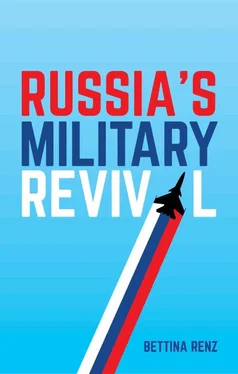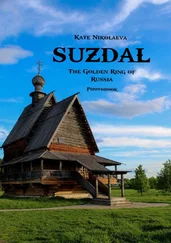There is no doubt that during the past few years, Moscow has achieved some successes in its quest to regain international stature. But it’s difficult to say whether these gains will prove lasting. The Kremlin may have outmanoeuvred its Western rivals in some ways during the crises in Ukraine and Syria, […] but Moscow’s failure to develop a coherent economic strategy threatens the long-term sustainability of its newly restored status.
Sovereignty has been the central principle of international society since the late seventeenth century. As Charles Ziegler has written: ‘key to the definition of sovereignty is the exercise of authority over a geographically defined territory’ (2012: 401). Sovereignty has an internal and external dimension. As Robert Jackson put it, ‘Sovereignty, strictly speaking, is a legal institution that authenticates a political order based on independent states whose governments are the principal authorities both domestically and internationally’ (1999: 432). The defence of territorial jurisdiction and sovereignty to conduct its internal and external affairs without outside interference has been central to Russian foreign policy, as is the case for most states, throughout its history. However, since the collapse of the Soviet Union, which presented Russia with a serious crisis of statehood and identity, the importance of maintaining the country’s sovereignty has emerged as a key principle and become, as Viatcheslav Morozov has written, ‘the top priority in the Russian foreign policy agenda’ (2010: 2).
Throughout his presidency, Putin has stressed Russia’s need to protect its sovereignty on many occasions, for example, in his annual State of the Nation speech in 2014. In this speech, he asserted that ‘true sovereignty for Russia is absolutely necessary for survival’ (Putin 2014b). To outside observers, Russia’s ongoing concern about sovereignty might appear surprising, because international attention has tended to focus on problems pertaining to the sovereignty of the other former Soviet states in view of Russian efforts to control or dominate them. Moreover, the international community has never seriously doubted Russia’s status as a sovereign state with exclusive jurisdiction over its territory or political process. In order to understand the centrality of sovereignty in Russian foreign policy discourse, it is important to understand the complexity of the Kremlin’s understanding of what ‘true’ sovereignty denotes, why it thinks it is threatened, and what policies it has adopted to counter these perceived threats.
Before discussing the specificities of Russian views on sovereignty, especially in the post-Soviet years, it is important to note that, like most states, Russia perceives a strong military as an absolute requirement for the preservation of sovereignty on the most fundamental level. Having the capacity to defend a state’s territorial integrity has, historically, been viewed as an essential requirement for ensuring sovereignty (Rudolph 2005: 7–8). The feeling of vulnerability, in Russia’s case, has been aggravated throughout the country’s history by its size, long borders and geopolitical position. In Suny’s view, geography constitutes a major factor that can explain certain trends in Russian foreign policy: ‘Russia today, as in much of the past, lives in a dangerous neighbourhood. Both real and perceived dangers have historically contributed to its sense of weakness and vulnerability’ (2007: 35–6). Not surprisingly, all Russian military doctrines issued since the end of the Cold War, which are discussed in more detail in chapter 5, list the defence of Russia’s sovereignty and territorial integrity as the first task of the armed forces. In Putin’s view, military power is fundamental to the country’s sovereignty. Military modernization was therefore inevitable, as he noted in 2006: ‘we need armed forces able to simultaneously fight in global, regional and – if necessary – also in several local conflicts. We need armed forces that guarantee Russia’s security and territorial integrity no matter what the scenario’ (Putin 2006).
That said, sovereignty is a contested concept. Its meaning has varied throughout history and has been interpreted differently by individual states (Barkin and Cronin 1994: 108–9). As such, in order to understand why sovereignty is so central to Russian foreign policy, Moscow’s specific understanding of the concept needs to be considered. Russia continues to adhere to a ‘traditional’ Westphalian reading of sovereignty. An aspect of Westphalian sovereignty particularly important to Russia is the principle of balance of power, which would prevent any one state from seeking hegemony in the international system (Jackson 1999: 441). Throughout history, Russia played an important role in maintaining a balance of power in Europe, not least because it had the military strength to do so. This included Russia’s role in preventing Napoleonic France’s bid for hegemony, Nazi Germany’s expansion leading to the Second World War, and also the rivalry with the United States in a bipolar contest during the Cold War. In the post-Soviet years, Moscow’s strong concerns about what it sees as a unipolar world order dominated by the United States became apparent already during Yeltsin’s first term as president. Moscow came to understand that its loss of great power status meant that it no longer had the clout to shape developments of global importance. Russia’s inability to prevent NATO’s military operation against Slobodan Milosevic’s regime in 1999, which it vehemently opposed, cemented this perception. As Charles Ziegler put it, ‘the problem from Moscow’s perspective is that Washington expects Russia to subordinate itself to the US-dominated international hierarchy that emerged after 1991. Russian leaders vehemently reject the implication that they should accept a subordinate international status within this new order’ (2012: 412).
Russia’s understanding that its sovereignty is threatened in this way shaped its military policies. For the Kremlin, it became increasingly clear that a weak military curtailed its freedom of international action as a side-effect of the loss of great power status. From 2000 onwards, strengthening Russia’s military power became a priority as this seemed indispensable to protect the country’s sovereignty to act as an independent pole in international politics, whose voice could not be ignored. As Putin summed it up in 2012:
the basic principles of international law are being degraded and eroded, especially in terms of international security. Under these circumstances, Russia cannot fall back on diplomatic and economic methods alone to settle contradiction and resolve conflict. Our country faces the task of developing its military potential as part of a deterrence strategy and at a sufficient level. Its armed forces, special services and other security-related agencies should be prepared for quick and effective responses to new challenges. This is an indispensable condition for Russia to feel secure and for our partners to heed our country’s arguments in various international formats. (Putin 2012b)
Recent displays of the country’s revived military power have had as one of their main objectives to force ‘partners’ to listen to Russia’s arguments. As Fyodor Lukyanov put it, ‘by taking action in Ukraine and Syria, Russia has made clear its intention to restore its status as a major international player’ (2016).
It is no coincidence that Putin’s statement quoted above notes the need to strengthen not only the regular armed forces, but also the special services and other security-related agencies, which are predominantly responsible for dealing with domestic order and stability. This is because Russia’s view of sovereignty is characterized by a distinctly intertwined nature of its internal and external dimensions. The Kremlin believes that its sovereignty to conduct its internal affairs without outside interference can only be preserved if it can also pursue an independent foreign policy abroad. As Ziegler described this, Russian policy shows a ‘close linkage between the recentralizing project domestically, and the reassertion of Russia’s position as a great power on the international scene’ (2012: 401). Russia has long regarded international adherence to the principle of non-interference in the domestic affairs of other states, which is central to the ‘traditional’ Westphalian view of sovereignty, as the key to protecting its freedom of action at home. Since the end of the Cold War, a general shift in views of security from a state-centred focus towards a more human-centred interpretation, meant that this principle as an absolute has come into question. In cases where states themselves present a threat to their citizens, state sovereignty is no longer always seen as a barrier to outside intervention to enforce compliance with humanitarian norms (Thomas and Tow 2002: 180). This view was enshrined as a new principle in international law, the Responsibility to Protect, by the UN in 2005 (Bellamy 2009).
Читать дальше












